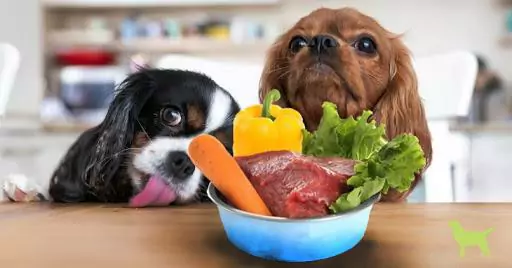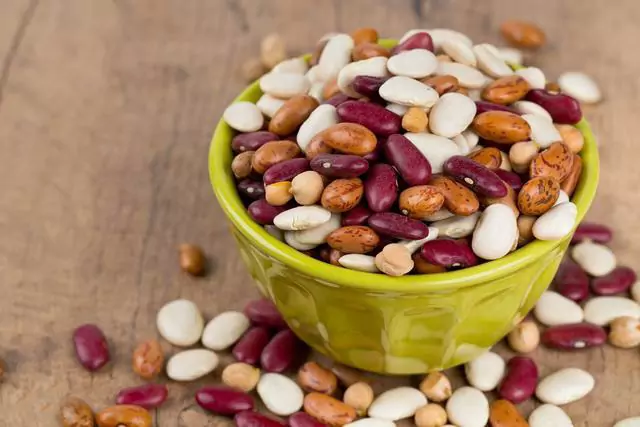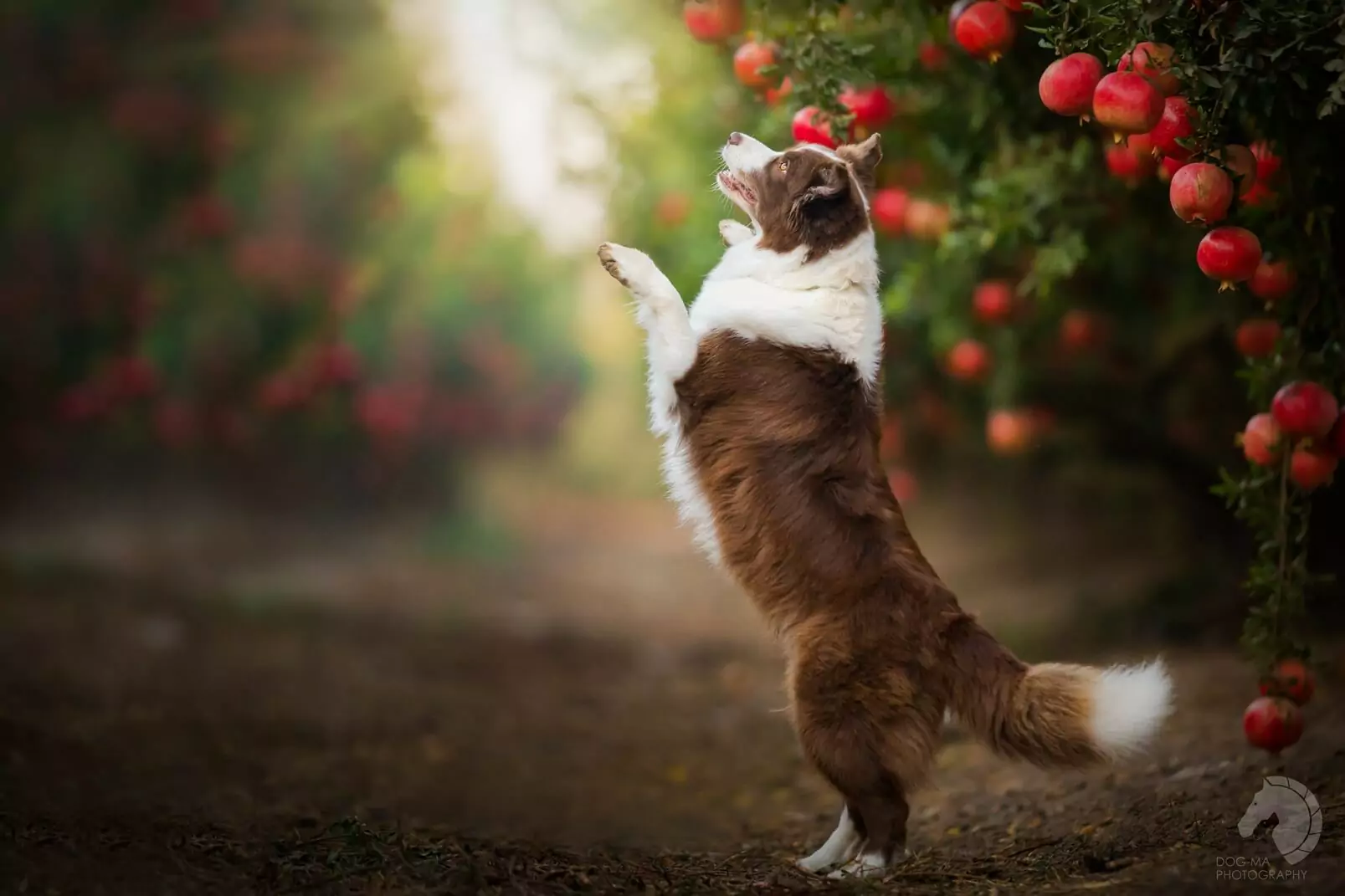What vegetables can dogs eat? Why do dogs need to eat vegetables?
2022-07-08
In the process of raising a dog, many people will feed their dogs some vegetables to supplement the vitamin bar, but not so the vegetables are suitable for dogs to eat Oh, of course, eat to know what vegetable dogs can not eat, but also to know what vegetables dogs can eat.
I. Why should dogs eat vegetables?
1. Dogs have been consuming vegetables in the wild for all of their evolution
First, let's talk about where dogs fit in the classification of herbivores and carnivores. They are not pure carnivores like cats, and they are not herbivores like cows and horses.
Although dogs are carnivores, their diet is more diverse than that of cats. In terms of classification, they fall somewhere between omnivores and carnivores. Dogs, wolves and other wild canids have been eating vegetables for thousands of years.
Wild canids eat the intestinal contents of their prey to be digested, which usually contain plants.
They also eat vegetation directly, including herbs and vegetables.
2. Vegetables can help alkalize a dog's body
Balancing the acidity of the diet is important to your dog's health. Certain organs function better in a more alkaline environment. This includes the liver, pancreas, gallbladder, hormones, heart, and kidneys.
If the acidity is too high, it can lead to inflammation. And inflammation can lead to more chronic diseases.
Proteins such as meat can make the body more acidic. This means dogs need to balance these proteins with vegetables that are alkalizing to the body. Such edible alkaline vegetables include celery, parsley, seaweed, watercress, asparagus, alfalfa sprouts, garlic, ginger, peas, lettuce, broccoli, and cauliflower.
3, vegetables contain a wide variety of nutrients
Vegetables are rich in important nutrients that dogs need, including protein, lipids, fats, carbohydrates, and fiber. This is why they are a complete food for herbivores such as cattle, sheep, and rabbits.
While your dog must eat meat to get all the amino acids he needs, eating vegetables helps balance his diet. And they provide important phytonutrients that are not found in meat.
But you want to stay away from grains and legumes, such as peas and beans. They are high in starch and can aggravate or cause many diseases.
4. They keep your dog well hydrated
Dogs that eat coarse ground dog food are chronically dehydrated. Dehydration can lead to problems such as kidney disease or the formation of bladder stones.
Vegetables are a great source of hydration. Cucumbers, lettuce, broccoli, and Brussels sprouts have more than 85% water content.
5, vegetables are rich in vitamins
Unprocessed vegetables provide dogs with a variety of vitamins, including
B vitamins: Promote growth, aid digestion, help strengthen the nervous system and enhance the immune system. Vegetables have many B vitamins but are low in B12 and B1, so your dog will also need foods like liver and eggs.
Vitamin C and cofactors: Dogs can make their own vitamin C, but they need cofactors to help their bodies complete their manufacturing. As they age or become more stressed, your dog will also need a vegetable supplement for vitamin C.
Vitamin A: Boosts immunity, protects eye health, prevents skin disease, and helps grow strong teeth and bones.
Vitamin E: This antioxidant helps prevent cancer and other diseases, and also promotes healthy skin and hair. It also promotes healthy skin and hair.
Vitamin K: Plays a role in bone formation and repair, and helps improve liver function.
6, vegetables are also rich in minerals
Dark green leafy vegetables contain important minerals such as calcium, potassium, and magnesium. Vegetables such as alfalfa and seaweed are also good sources of minerals.
The roots of alfalfa can penetrate more than 10 meters into the ground and absorb minerals from the earth. Seaweed can absorb minerals and micronutrients that wash into the sea.
But make sure these foods are organic and not grown with synthetic fertilizers.
7. Vegetables contain phytonutrients
Phytonutrients are one of the most important nutrients you can provide to your dog. However, phytonutrients are only found in fruits and vegetables. So, if your dog only eats meat, he's missing out big time.
In the late 20th century, scientists studied diets rich in vegetables. They found that vegetables protected people from cancer, heart disease, diabetes, and other diseases.
Today, they know that these health benefits come from substances known as phytonutrients. These powerful nutrients can.
Kill cancer cells
Reduce inflammation
Promote intestinal health
Ensure a healthy liver
The most phytonutrient-rich vegetables are broccoli and kale.
8. They help dogs digest food
Enzymes are special proteins that help digest food and carry out metabolic processes. Vegetables such as asparagus, spinach, and tomatoes are particularly rich in enzymes.
Some enzymes can survive the acidic environment in your dog's stomach and enter the intestinal tract. These surviving enzymes have anti-aging, anti-aging, and health-promoting effects.
9, vegetables contain antioxidants
Vegetables and herbs are rich in antioxidants, such as lutein and beta-carotene. They help protect your dog from unstable molecules called free radicals. Free radicals are a major cause of aging and disease. They build up in the body like rust, damaging cells and organs.
Antioxidants help stabilize free radicals and prevent them from spiraling out of control. And plants are the only source of antioxidants.
10. The fiber contained in vegetables can promote your dog's health
Unprocessed vegetables contain a lot of fiber, which is undigested as it passes through your dog's intestines, and once it reaches the colon, bacteria living there ferment the fiber. It is then made into healthy substances called short-chain fatty acids (SCFAs). SCFAs are then used to provide energy, build immune cells and protect the intestinal mucosa.
It's not just the production of SCFAs that is so important to your dog. Fiber has many other health benefits as well.
Studies have shown that increased consumption of fiber can reduce the risk of cancer.
Fiber has antioxidant properties.
It nourishes beneficial bacteria and promotes a healthy gut.
Fiber removes toxins from the body.
It can increase satiety for the perpetually hungry dog.
11, scientific studies also prove that dogs need vegetables.
Researchers have studied the relationship between vegetables and bladder cancer in Scottish Terriers. Their owners filled out a questionnaire about their dog's diet and supplements. The researchers then assessed the risk of cellular cancer of the bladder.
Dogs that ate dark leafy green, yellow, and orange vegetables three or more times a week had a 90 percent lower risk of cancer. And dogs that ate only cruciferous vegetables had a 70 percent reduction.
So are synthetic vitamins a substitute for vegetable nutrition? This is not possible. In the study, vitamin supplements did not have any significant effect on cancer risk.

II. Vegetables your dog can eat
1. Apples
An apple a day, the doctor stays away from me. We've all heard this saying before, and there's a basis for it. Because apples are rich in antioxidants, they help boost the immune system. And they also taste good and dogs like to eat them. However, it is important to note that the apple core should be removed, otherwise, it will be harmful to the health of the dog instead.
2. Spinach
Spinach is as rich in iron and calcium as vegetables, more supplementation of these two substances is good for the dog's bone health. At the same time, spinach also contains flavonoids and carotenoids and therefore has anti-inflammatory / anti-cancer properties.
3. pumpkin
Pumpkin is often used by dog food manufacturers in fresh food and Wonder Pack. It helps the dog's intestinal health and can be a sick meal for dogs with diarrhea.
4. String beans
The low-fat content of string beans makes them ideal for weight control. At the same time, the fiber contained in the beans can promote the dog's intestinal tract movement and is a very good weight loss ingredient.
5. Watermelon
Watermelon is full of the antioxidant lycopene, watermelon is mild enough for most dogs. In addition to being nutritious and delicious, it's juicy enough to add a little extra hydration to your dog on a hot day.
6. Cantaloupe
Cantaloupe is a mild ingredient that is easy to digest and also rich in fiber. More specifically, cantaloupe contains beta-carotene, which can prevent cataract problems in dogs.
7. Carrots
Carrots not only help dogs lose weight and get their carotenoids, but they also help with oral hygiene. If you have run out of teeth cleaning sticks at home but haven't bought new ones yet, you can choose to peel a carrot for your dog and use it as a cleaning stick.
8. Blueberries
The antioxidant properties of blueberries have been touted many times by micro-businesses and beauty bloggers, so we won't go over them again. What we need to know is what blueberries can do in humans, they can do the same in dogs.
9. Pears
Pears are good for your dog's heart, and their sweet taste can be enjoyed by dogs, and the juicy pulp can hydrate them. It is a texture and taste that most dogs will enjoy.
10. sweet potatoes
Sweet potato is also a vegetable and fruit that is often used in fresh food. Sweet potatoes contain a large number of amino acids, which help protect the dog's muscles and enhance the dog's antioxidant capacity.
Was this article helpful to you?
Other links in this article
português (Brasil):
Que vegetais os cães podem comer? Por que os cães precisam comer vegetais?
中文简体:
狗可以吃什么蔬菜?狗狗为什么要吃蔬菜?
中文繁体:
狗可以吃什么蔬菜?狗狗為什么要吃蔬菜?
Comments

Is a dog's mouth cleaner than a human's? Dogs' mouths need regular cleaning

Can dogs eat beans? Do dogs eat beans for health?

Can dogs eat lemons? Fruits that dogs should not eat more of

Do dogs have nightmares? Are dogs' dreams similar to humans'?

Can dogs eat raw beef? The benefits and drawbacks of beef for dogs

Is raw meat good for dogs? Can dogs eat raw chicken?

Can dogs eat pomegranates?

Can dogs eat ham?Can all types of ham hocks be eaten?

How to give a dog a bath

Can dogs eat kimchi?










